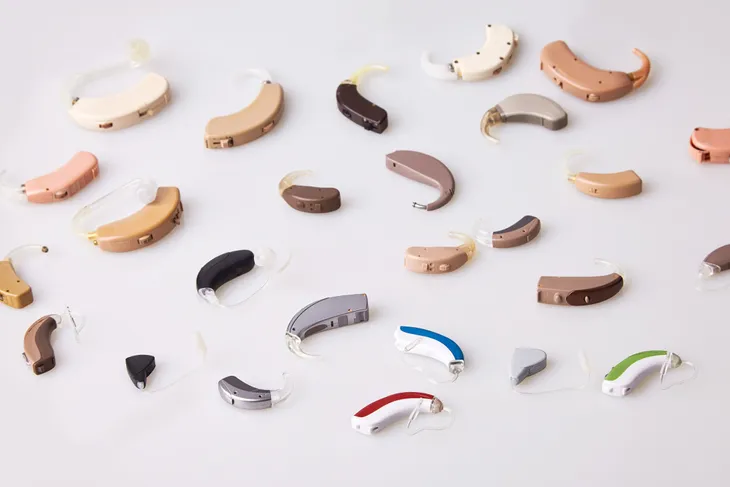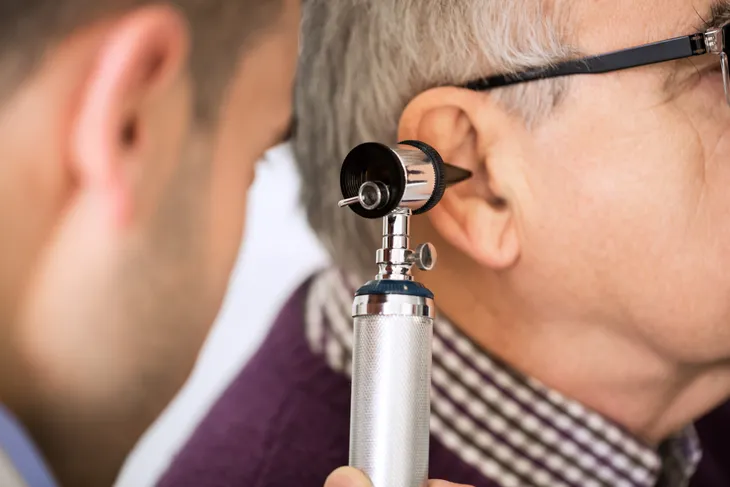Hearing loss is a major global issue. Around 5% of the world population, 430 million, have disabling hearing loss. With ageing populations, this burden will only increase.
The primary remedy is the simple hearing aid. It is an essential helpmate to ensure continued social contact and quality of life. Simple, but not necessarily cheap. They cost around US$1,000 (£850) per ear for a reasonable quality device – not an insubstantial amount, especially in times of austerity. Although, in the UK they are free on the NHS.
The basic function of a hearing aid is to amplify sound in a pattern to match the profile of the loss of hearing sensitivity in the wearer. Legally, a hearing aid can only be dispensed by a registered clinician. But a new class of devices, called personal sound amplification products (PSAPs), bypass this legal restriction.
A PSAP is not a difficult device to build. Most of us already carry the core components around in our pockets in the form of a smartphone. A microphone, some computer processing and either a loudspeaker or earpiece are “all” that you need.
The processing, in the form of apps, has been available for many years. In its simplest form, even the ability to separately control the treble and bass of your smartphone performs like a PSAP.
 krolya25 / Shutterstock
krolya25 / ShutterstockTaking this further, a new paper from researchers in Taiwan reports on the possible use of earbuds as PSAPs, specifically Apple AirPods, incorporating the Apple “Live Listen” function. Live Listen allows the microphone on an iPhone to amplify audio and transmit it wirelessly to AirPods.
Using technical measures, a few of these models meet some of the required performance standards for PSAPs. In the paper, volunteers with hearing impairment were assessed on their ability to repeat back speech presented in either quiet or in noise. The researchers reported similar improvements in performance to those available from either a premium or a basic hearing aid when compared with unaided hearing.
Does this mean that the extensive development work put into hearing aids over the past 100 years has been usurped? Not really.
The most common form of hearing loss that can’t be fixed with surgery is the loss in the cellular mechanisms of the cochlea – the tiny snail-shaped organ that sits at the end of the ear canal. This loss is not like blocking your ears. A person loses the sensitivity to soft sounds, but loud sounds often appear just as loud as to a person with unimpaired hearing.
The solution is an automatic volume control: turning up quiet sounds and turning down too-loud sounds. This automatic control can be performed in a smartphone app so that the user always has a comfortable listening experience. Since hearing loss also varies with audio frequency, the behaviour of the automatic volume controls has to change with frequency.
A modern hearing aid performs multiple channels of automatic volume control but has a host of other features operating at the same time. For example, reducing interfering noises, preventing squealing and operating “directional microphones” to focus on the desired sound source. All of these features contribute to the long-term wearability of any hearing aid. This latest study is light on detail as to what processing was performed in the AirPods other than the use of volume control.
Not a long-term fix
So why are hearing aids more expensive than PSAPs? When an audiologist measures hearing loss, they also look to identify the causes of the loss – which can be many more than just the changes expected with old age. Some of these causes can be very serious and require treatment. This necessary human expertise has to be paid for.
There are also serious consequences of untreated or under-treated hearing loss. Uncorrected losses of our senses are associated with longer-term declines in mental abilities, with an increased risk of dementia. These declines are identifiable only over many years, or even decades, and are associated with massive costs – costs that will need to be covered by families and healthcare systems.
The researchers in the new study say that PSAPs “could potentially bridge the gap between persons with hearing difficulties and their first step to seeking hearing assistance”. But it would be unwise to see them as a long-term fix.
 Shutterstock/didesign021
Shutterstock/didesign021Michael A Stone, Senior Research Fellow, Division of Human Communication, Development and Hearing, University of Manchester
![]()
This article is republished from The Conversation under a Creative Commons license. Read the original article.




